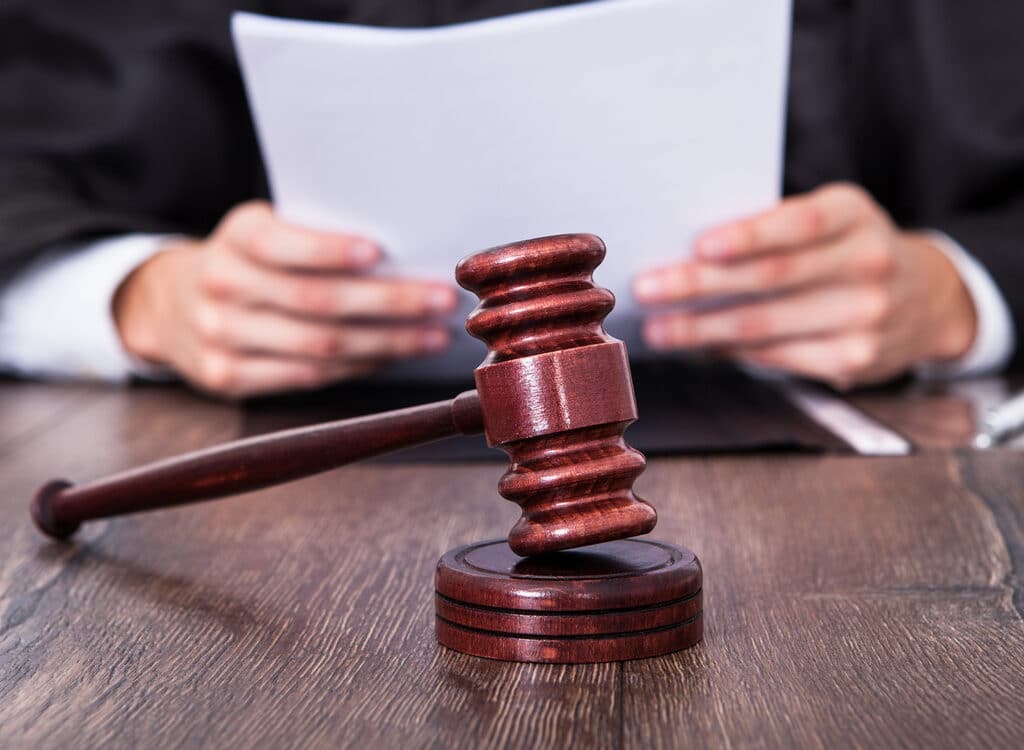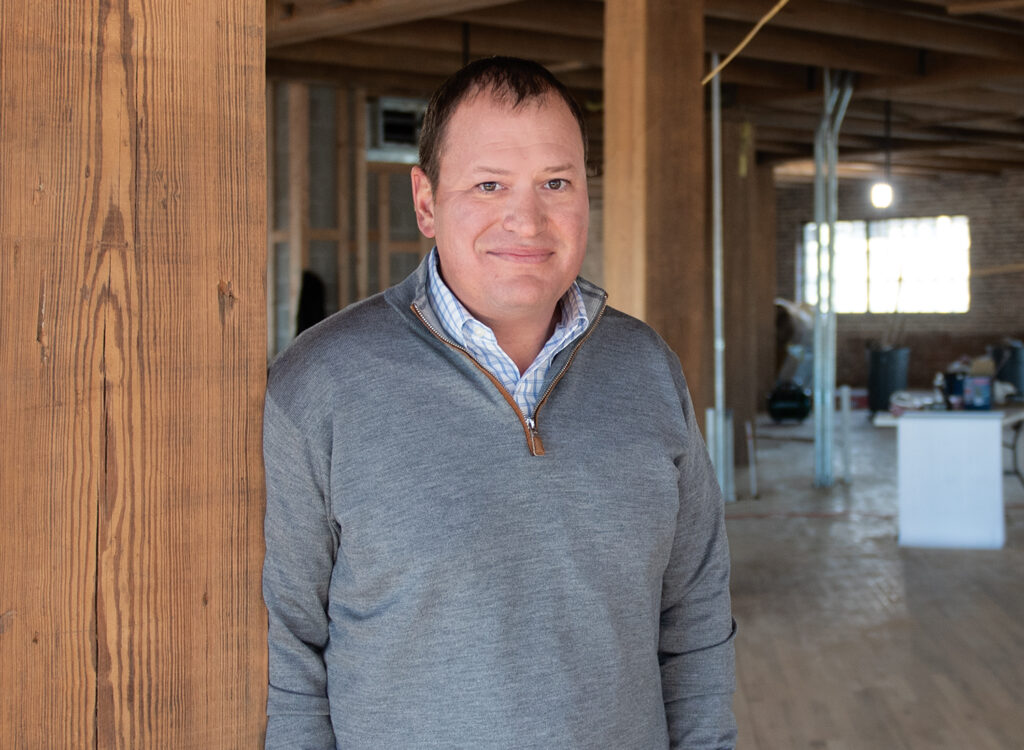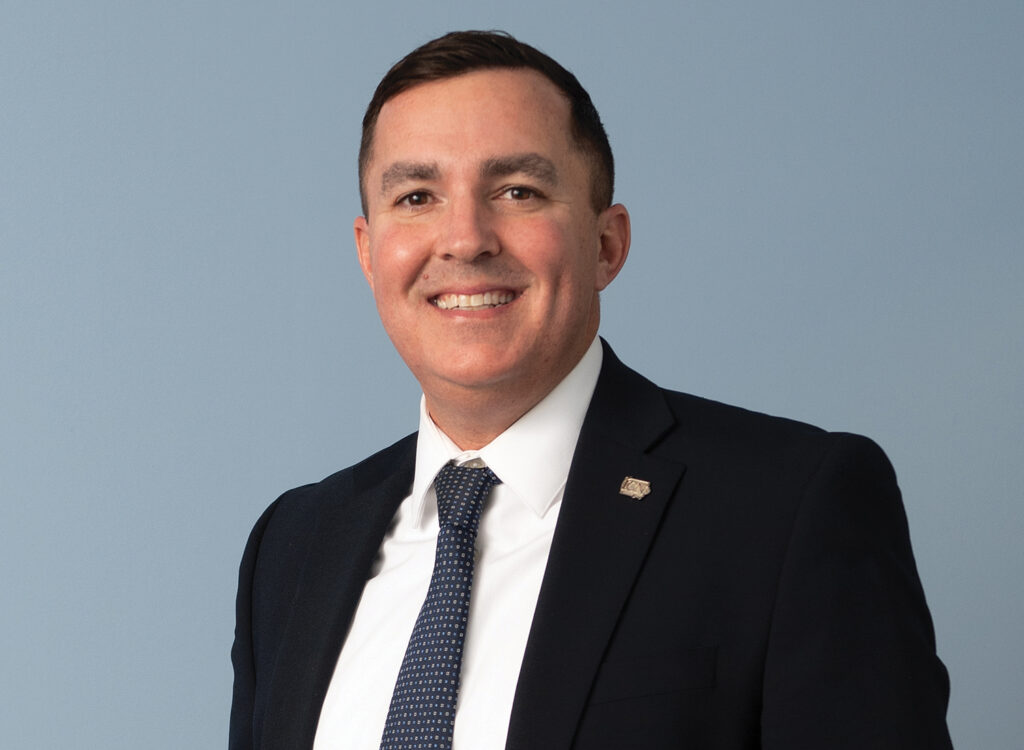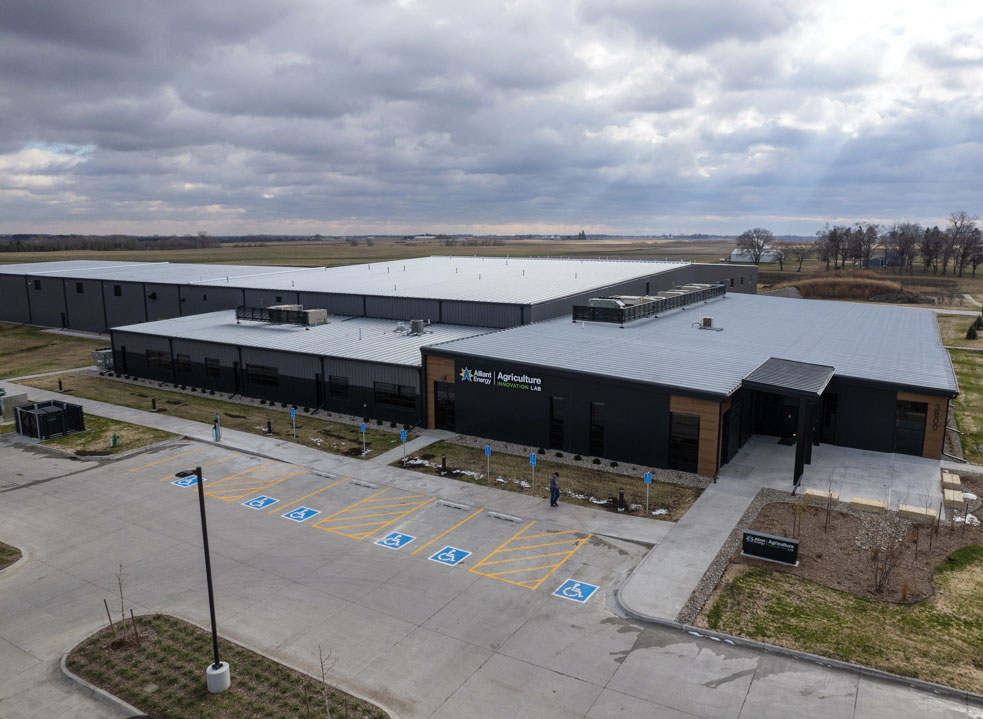Green is the word
From electric cars to solar and stormwater, how Des Moines is prioritizing sustainability in its clean energy goals

MICHAEL CRUMB Apr 8, 2021 | 1:36 pm
7 min read time
1,636 wordsBusiness Record Insider, Energy, Government Policy and Law
Four months after the Des Moines City Council approved a resolution calling for all the city’s homes and businesses to run on 100% clean energy by 2035, work is moving forward to begin the process of reaching that goal.
We spoke with Jeremy Caron, the city’s sustainable program director, to get an update on what’s been happening in the city’s mission to reduce its carbon footprint, which includes a reliance on renewable energy 24 hours a day, seven days a week.
“Clearly, the hard work comes now,” Caron said.
That hard work will include building a climate action plan, a master planning process that could take 18 months, he said.
The city is currently in the process of developing a request for proposal with hopes of kicking off the planning process shortly after the start of the next fiscal year on July 1.
“We are in the process of working with MidAmerican Energy and other community partners to identify solutions to help start moving us in that direction, and we’re looking at opportunities to implement renewable energy solutions across the city’s portfolio that might help us speed up that process of reaching that goal,” Caron said. “There’s a lot of things we’re exploring, and hopefully in the next couple of years we can start implementing some concrete solutions to move us in that direction.”
Caron said the development of a climate action plan could be fairly wide-ranging and address climate-related issues across sectors such as energy, transportation, natural resources and equity.
One thing the city is currently doing is taking delivery of 11 new Nissan Leaf electric vehicles. It previously purchased four of the cars, and after those cars proved successful, the City Council approved the purchase of the additional ones, which were paid for out of the city’s fleet replacement budget, Caron said.
“They make financial sense for the city,” he said. “They’re cost-competitive with internal combustion engines, and the maintenance costs over the lifetime of the vehicle are typically significantly lower, so from a budget standpoint, they make sense.”
The four cars the city already have are being used by the Neighborhood Services Department and have been assigned to inspectors for use in their official duties
Caron said the city is also evaluating opportunities to electrify other fleet vehicles, like pickup trucks and heavy equipment.
“Those technologies are still being proven and developed, so we’re waiting for some viable options,” said Caron, who noted that Des Moines Regional Transit Authority introduced seven electric buses to its fleet last fall.
The city also received funding from the Volkswagen Settlement Fund to install electric vehicle charging stations in some of the city’s parking garages. The automaker agreed to settle a complaint by the U.S. Environmental Protection Agency that said Volkswagen violated the Clean Air Act with vehicles sold between 2009 and 2016 that were equipped with “defeat devices” designed to perform differently during normal operation than during emission tests.
The city received two grants totaling $30,000 to install additional charging stations in the downtown area.
There are currently 16 electric vehicle charging stations in seven garages, with three more planned for the Fifth and Walnut garage.
The VW settlement will allow for the installation of additional charging stations in the Third and Court and Fifth and Keo parking garages.
“Citywide we’re looking at opportunities to provide additional charging infrastructure and where can we best meet the needs of electric vehicle owners throughout the city and make it accessible to the public,” Caron said.
Other initiatives the city is involved with include the benchmarking program established in 2019. That requires property owners with property over 25,000 square feet to report their energy and water use to the city annually. Des Moines is one of 17 cities in the country to use the program, Caron said.
Currently, only city data is public, but under the program, private property owners’ data will be public by 2022, he said.
The goal of the program is to help the city develop more targeted incentives and programs to help property owners invest in those properties.
The city is also reviewing the efficiency of its own properties, Caron said.
While the city has been able to find efficiencies and savings through recommendations found in a MidAmerican Energy Co. audit, Caron said there are still opportunities and newer technologies that can be implemented.
The city is currently incorporating solar energy in the new 215,000-square-foot Municipal Service Center 2 that will be built to house public works and solid waste departments. Solar energy is also being incorporated into the city’s new $5.5 million animal control center.
“Beyond that, we have other buildings and properties where there’s a lot of value in us looking at larger solar arrays that might be able to serve multiple facilities, but we also want to figure out if there’s an opportunity now to integrate storage into that,” Caron said earlier this year.
Storage will be a key component to reaching the goals outlined in the council’s resolution, he said.
“To meet the goals, we need to figure out ways to store energy for when the sun’s not shining and the wind’s not blowing and use that to power city facilities and community assets,” Caron said.
Katie Rock, a representative of the Sierra Club’s Iowa Beyond Coal Campaign, said that the city’s resolution gives it the strongest clean energy standard in the country, and that the next step is “accountability to Des Moines’ carbon-free standard.”
Part of that will be MidAmerican Energy setting a timeline to achieve its goal of providing 100% clean energy to its customers, she said after the resolution was adopted.
Representatives from MidAmerican said they welcome the work that lies ahead in helping the city achieve its clean energy goals.
“Reaching Des Moines’ goal of 24/7 zero-carbon energy will require significant investments in new technologies that are in various stages of development and maturity,” a statement from company representatives said.
MidAmerican, which operates five coal-fired plants in Iowa, has retired four units at two locations in the past several years, and company representatives said more than 80% of energy supplied by MidAmerican to its customers comes from renewable sources.
Other sustainability activities the city is involved in include the development of a food security task force, which is initially looking at urban agriculture and how to make it easier for residents to grow their own food throughout the city. Later it will be exploring food access and eliminating food deserts in the metro, said Caron, who serves as the task force’s chair.
The city is also partnering with Central College, Invest DSM, the By Degrees Foundation and North High School to address stormwater management challenges.
The project, funded with a Microsoft Community Empowerment Grant, gives students exercises they do in the classroom that teach stormwater management best practices.
As part of the project, students act as the design and engineering firm to improve stormwater management in the Oak Park Neighborhood.
The students, with the help of experts from Invest DSM, RDG Design and the Des Moines Metropolitan Planning Organization, began developing concepts that will be presented to the Oak Park Neighborhood Association on April 13 to get public input, and hopefully choose a concept based on that feedback.
“For the rest of the semester, they will be refining that design and working with public works and city engineering to turn it into a constructible project,” Caron said.
He said the goal is to build off the revitalization efforts currently underway in the Oak Park Neighborhood.
While the primary goal of the city’s resolution, adopted Jan. 11, is to reduce the city’s use of energy produced by coal, city officials see the potential for economic development, too, Caron said.
“Increasingly companies are being pressured by their peers or their customers to adopt these types of goals,” he said. “Ours was inspired by Google committing to this goal in 2019, and so we also see this as an economic development tool to bring in more of those tech companies.”
Some of that may be found in energy storage, Caron said.
“Maybe this is a way we can attract more storage-related businesses to the Des Moines area,” he said.
Here’s what you need to know about the city of Des Moines’ move toward 100% clean energy consumption by 2035.
1: Work is underway to issue a request for proposal with planning on a clean energy plan slated to start after July 1, 2021.
2: The city is working with MidAmerican Energy Co. and other community partners to jump-start the planning process.
3: The master planning process could take up to 18 months to develop.
4: Once developed, it’s expected that the plan will be wide-ranging and include energy, transportation, natural resources and equity.
5: The city is using money from the Volkswagen Settlement Fund to help install additional electric vehicle charging stations in city garages.
6: The City Council has approved the purchase of 11 more Nissan Leaf electric vehicles. The city currently has four.
7: The city is already developing a benchmarking program that will require private property owners to report their energy and water use to the city to help the city develop more targeted incentives and programs for owners to invest in their properties.
8: The city is incorporating solar energy in the new 215,000-square-foot Municipal Service Center 2 that will be built to house public works and solid waste departments.
9: The city is also incorporating work of its Food Security Task Force into the plan, focusing first on how to make urban farming easier for residents.
10: The city, Des Moines North High School and Central College are partnering with Invest DSM and others to develop a stormwater management project for the Oak Park Neighborhood with funding from a Microsoft Community Empowerment Grant.









